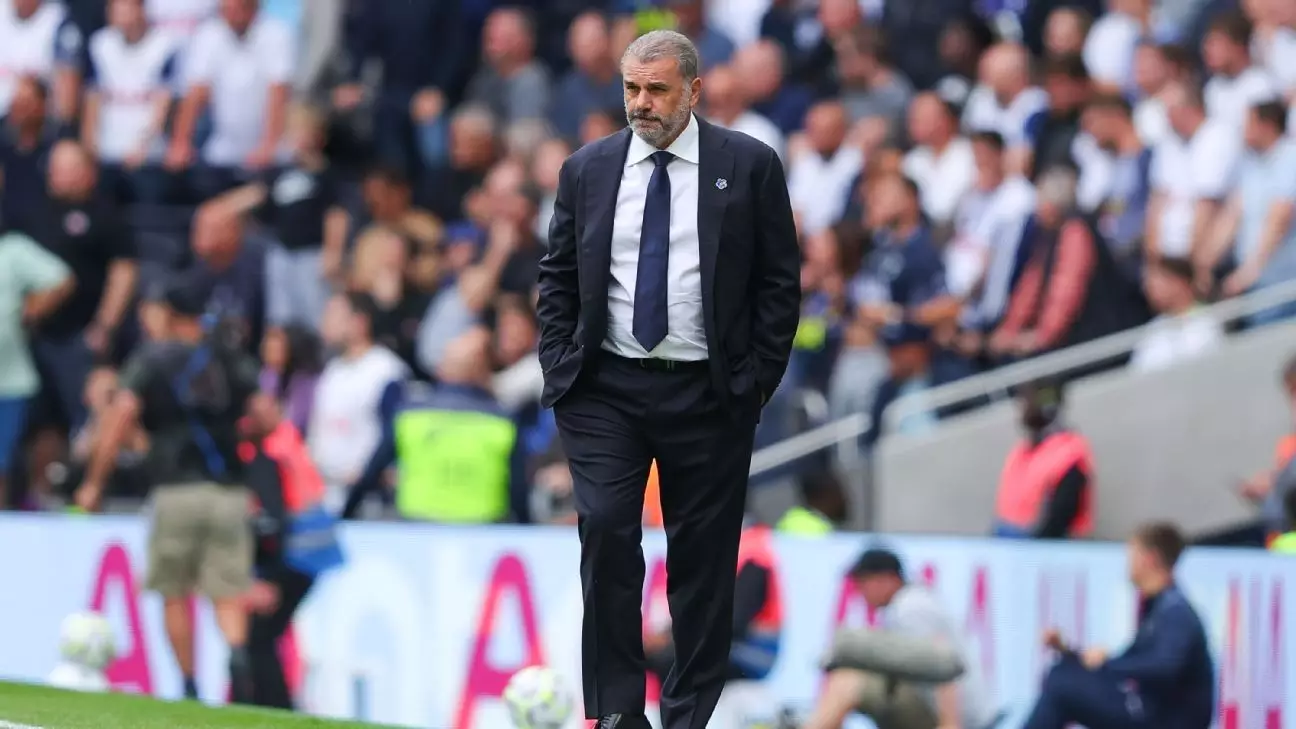In the aftermath of Tottenham Hotspur’s disappointing 1-0 defeat to Arsenal in the North London derby, head coach Ange Postecoglou faced significant backlash for his comments regarding his performance in second seasons at previous clubs. Notably, Postecoglou mentioned, “I always win things in my second year,” a statement that invoked widespread criticism despite his intent to express confidence based on historical success. This incident underscores the complexities of managerial rhetoric in football and how a seemingly harmless assertion can spiral into controversy.
Postecoglou’s assertion is rooted in a track record of achievement at notable clubs like Celtic, Brisbane Roar, and Yokohama F. Marinos, where he indeed celebrated victories during his second seasons. However, the stark contrast with Tottenham Hotspur’s barren spell without a trophy since 2008 adds a layer of irony and tension to his comments. It illuminates the weight of historical context in sports, where a manager’s past successes may not easily translate to a different club with distinct challenges.
The reaction from both the media and former players has been revealing. Paul Merson’s sarcastic comparison, claiming he had a better chance of winning the reality show “Strictly Come Dancing” than Spurs winning silverware this season, highlights the sentiment of skepticism circulating around the club. It emphasizes how the narrative around Tottenham is entrenched in a history of disappointment and underachievement. The expectation for immediate success is a heavy burden for a manager trying to shift a club’s trajectory.
Furthermore, Postecoglou’s bewilderment at the backlash reflects a common struggle faced by coaches: the challenge of managing narratives in an age where every word is scrutinized. His insistence that he did not intend to boast but instead share a factual perspective is a reminder of the fine line managers walk when discussing their past accomplishments.
Postecoglou is navigating a complex coaching landscape where confidence can be misinterpreted as arrogance. His intention was likely to instill belief in his current squad, a critical element in football management. However, highlighting personal achievements while directing attention towards the future success of Tottenham might lead to misunderstandings among fans and analysts alike.
As a leader, Postecoglou’s challenge lies in effectively communicating his vision without inviting criticism. His unflinching belief in his methods and the track record he brought could either galvanize the team or amplify skepticism among supporters who crave tangible results. Thus, he must strike a balance between showcasing his capabilities and respecting the current club context.
Moving forward, Postecoglou faces the task of not only dealing with external perceptions but also fostering a mentality within his team that is conducive to winning. While he has suggested a rotated line-up for the upcoming Carabao Cup match against Coventry, he must be wary of how decisions reflect on both his management style and the club’s aspirations. As much as winning in the second year has been a hallmark of his career, the immediate goal for Tottenham is to rebuild and forge an identity that can challenge for silverware once again.
The ongoing dialogue surrounding Postecoglou’s comments and the performance of Tottenham highlights the broader themes of expectation, achievement, and the narrative of redemption. As he continues to work towards revitalizing Spurs, the way he navigates these discussions will be as pivotal as the actual results on the pitch.

